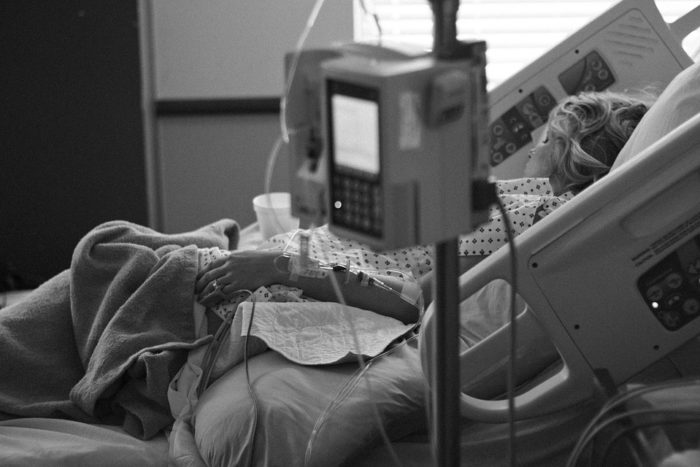
Here’s a not-so-fun fact to start off with: although Americans pay more for our healthcare than any other high-income nation, we have a lower life expectancy and worse health. Why? Well, the two are directly correlated. A large majority of Americans avoid getting much needed medical care because it’s too expensive. They simply can’t afford to take care of their health.
Sadly, according to a jointly conducted survey by Amino and Ipsos, things seem to be getting worse. Of the 1,000 adults polled, 74 percent said their healthcare costs have gone up in the last few years. The survey also revealed that in the past year:
- 55 percent of Americans received a medical bill that was more than they could afford.
- 37 percent stated a bill higher than $100 was more than they had the ability to pay.
- 53 percent felt that a high medical bill was just as bad as having a serious illness.
For many of you, I’m sure these findings come as no surprise. And perhaps it’s because you belong to the generation hardest hit by the high cost of healthcare — millennials.
Too Poor To Be Healthy
Many articles paint millennials to be ignorant about workings of the healthcare industry. The truth is quite the opposite — we know exactly how things work. We know that failing to pay medical bills can lead to late fees, collections, lawsuits, bankruptcy, and the utter destruction of our credit score. Is it any wonder that financial anxiety prevents us from seeking the care we desperately need?
Millennials are the most likely of all age groups not to get medical care when they need it due to the expense. A PNC Healthcare survey revealed that 54 percent of millennials delay health care because of cost. What’s more, a survey from Zocdoc found that 93 percent of millennials neglect to schedule preventative care visits as well.
The concern over cost leads millennials to vocally advocate for themselves when they do make it to the doctor. According to a 2015 report by PwC, 19 percent of millennials ask for a discount on medical care. And, a 2012 Deloitte survey found we’re the generation most willing to switch doctors, use retail clinics, and travel farther in order to cut healthcare expenses.
Finally, millennials are also the most likely to attempt to forgo medical intervention and treat health concerns themselves. A study by Communispace reports that 28 percent of millennials admit to self-diagnoses, and 36 percent say they would treat themselves at home before seeing a doctor. Unfortunately, treating illnesses at home and delaying care can have grim long-term implications. When serious health conditions aren’t identified at their beginning stages, treatment becomes more expensive and less effective.

What Do Millennials Want From The Healthcare Industry?
After the Affordable Care Act took effect, researchers from the University of California, San Francisco noted that the number of young adults using preventive care services rose. The improvement showed that if the financial barrier to healthcare were removed, millennials would actually be willing to seek medical attention. If the healthcare industry (and Congress) are really invested in improving the health of American citizens, they’re going to have to do something to lower the prices. (If you find yourself with a medical bill you can’t afford, consider taking these steps.)
However, expense isn’t the only thing holding millennials back when it comes to medical care. Thanks to high rates of generational under- and unemployment, we simply don’t have the kind of job security that allows us to schedule doctor’s visits during work hours. According to the Zocdoc survey, 42 percent of millennials said they would cancel a checkup due to work obligations. Perhaps this is why 74 percent of millennials would prefer to see a doctor virtually. Telehealth options would allow young people to see a doctor when leaving work during the day simply isn’t feasible. The healthcare industry needs to adopt technological advancements in order to keep us as patients. Fortunately, emerging apps are giving millennial women more access to healthcare–check them out here.
Conclusion
Unfortunately, millennials aren’t the only ones hurting at the hands of our broken healthcare system. The working poor, homeless, elderly, racial minorities, and uninsured have a higher risk of developing severe medical problems due to substandard healthcare. Furthermore, people living in rural areas often suffer more than suburban and metropolitan residents due to lack of access to cutting-edge healthcare.
Most horrifying of all, according to the American Journal of Public Health, nearly 45,000 deaths per year are associated with lack of health insurance. Simply put, Americans are dying because they can’t afford healthcare. Facing a statistic like that, we’re left to wonder what kind of civilized country would put profits above the health of its citizens.
The answer, of course, is America.

__
Also by Liz: “It’s All In Your Head”: What All Women Should Know About Medical Gender Bias
Related: You Don’t Have To Blow Your Budget At Whole Foods To Be Healthy—5 Hacks
7 Ways to Care for Your Reproductive Health
Get more like this—Subscribe to our daily inspirational newsletter for exclusive content!
__
Photo: Pexels
